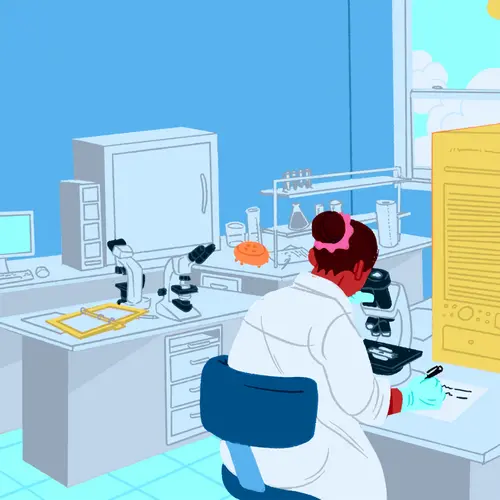Scottish actor Alan Cumming, who voices kilt-wearing, Braveheart-channeling Gutsy Smurf in the upcoming movie The Smurfs, made a special guest appearance this past April at the bedside of Sal, a patient undergoing chemotherapy at Memorial Sloan-Kettering Cancer Center in New York City. There, he performed songs as part of a music therapy program.
"It was humbling and intense," says Cumming, 46, also starring in the hit CBS series The Good Wife. He played an instrument called an ocean drum, which mimics the sound of crashing waves, as 52-year-old Sal sang gospel songs by Elvis Presley.
"His life had been turned upside down by his disease," says Cumming, "but here he was singing and chatting. For him, music therapy was a conduit to open up and look at things in a more inspirational way."
Gabrielle's Angel Foundation
Music therapy is used to ease patients' pain and anxiety and can also help reduce chemotherapy-related nausea and vomiting, according to the American Cancer Society. Over the past several decades, it has become a common part of comprehensive care at large cancer centers throughout the United States, including Sloan-Kettering.
Cumming and Sal were brought together by the N.Y.C.-based Gabrielle's Angel Foundation for Cancer Research (www.gabriellesangels.org), founded in 1996 by Denise Rich, a Grammy-nominated songwriter, after the death of her daughter from acute myelogenous leukemia. Gabrielle's Angel funds research for both conventional and integrative therapies for leukemia, lymphoma, and related cancers. Grant money from the foundation supports the music therapy program at Sloan-Kettering.
"I was really moved by what the organization was doing," says Cumming, who recently became an Angel Ambassador for the foundation. In that role, he will help raise awareness about the need for cancer research.
Cumming is looking forward to participating in music therapy again. "I didn't quite know what to expect," he says. "Lots of emotions well up at once. In a depressing place where people are so ill, here we were having a sing-along. It's the power of music on a basic level."

